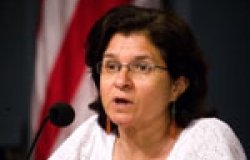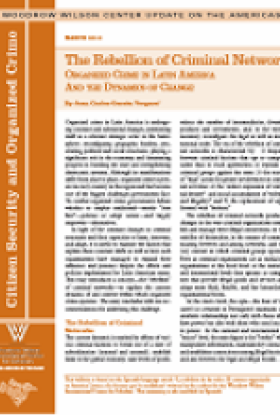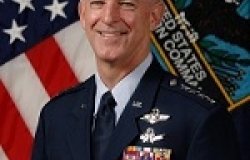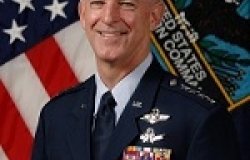Latin American Program in the News: Regional Security, Not Iran, a Primary Focus in South America
According to Arnson, though the issue of Iran is not salient compared to other issues in Latin America, its inconsistent relationship with the region highlights the already existent divisions in attitudes toward the United States. Though countries like Venezuela also reject the influence of the United States worldwide, she says, the broader region does not share Iran's hostilities.
[...]
When talking about their economies, summit participants celebrated the region's recent gains and its increasingly outward-looking vision for trade and business. But as regional citizens continue to face the daily threat of ongoing violence and organized crime, Latin American leaders were focused on finding solutions for the internal security obstacles.
"Compared to the challenges the countries are facing, [Iran] is just not even on the radar screen," says Cynthia Arnson, director of the Latin American Program at the Woodrow Wilson International Center for Scholars in Washington.
"When countries of the region think about the security issues that most affect their country, they're thinking about the tens of thousands of people that are killed for drug-related violence and other crime. The hypothetical threat that Iran might pose to them is just not something that they are focusing on."
That's not to say Iran is not involved in the region. As sanctions increasingly isolate the nation from the rest of the world, Iran has sought support from a handful of countries in Latin America, especially Venezuela. Tehran has nearly doubled its number of embassies in the region since 2005, the same year Iranian President Mahmoud Ahmadinejad took office, and Venezuelan President Hugo Chávez—who sat out this weekend's summit for health reasons—along with some of the region's other left-leaning leaders have bonded with Iran over shared interests.
According to congressional testimony given in March 2011 by Gen. Douglas Fraser, head of U.S. Southern Command, these shared interests include "avoiding international isolation, access to military and petroleum technologies and the reduction of U.S. influence" in the region.
Earlier this year, Ahmadinejad visited Venezuela, Nicaragua, Cuba and Ecuador, all nations whose leaders have been particularly outspoken about the role that the United States has in the region.
Elsewhere in Latin America, relationships with Iran are less than friendly and weakening. For example, even though her predecessor Lula da Silva had opposed international sanctions on Iran and tried to serve as meditator between Iran and its other global foes, current Brazilian President Dilma Rousseff has pulled away since taking office.
According to Arnson, though the issue of Iran is not salient compared to other issues in Latin America, its inconsistent relationship with the region highlights the already existent divisions in attitudes toward the United States. Though countries like Venezuela also reject the influence of the United States worldwide, she says, the broader region does not share Iran's hostilities.
Arnson also argues that due to the lack of consensus over how to deal with Iran, such a discussion would only have added to the tensions at the summit, already spurred by controversies like Cuba's participation. "It's one more issue on which there is a huge divide between the United States and the rest of the region," she says.
[...]
Read full article here.
About the Author


Latin America Program
The Wilson Center’s prestigious Latin America Program provides non-partisan expertise to a broad community of decision makers in the United States and Latin America on critical policy issues facing the Hemisphere. The Program provides insightful and actionable research for policymakers, private sector leaders, journalists, and public intellectuals in the United States and Latin America. To bridge the gap between scholarship and policy action, it fosters new inquiry, sponsors high-level public and private meetings among multiple stakeholders, and explores policy options to improve outcomes for citizens throughout the Americas. Drawing on the Wilson Center’s strength as the nation’s key non-partisan policy forum, the Program serves as a trusted source of analysis and a vital point of contact between the worlds of scholarship and action. Read more








